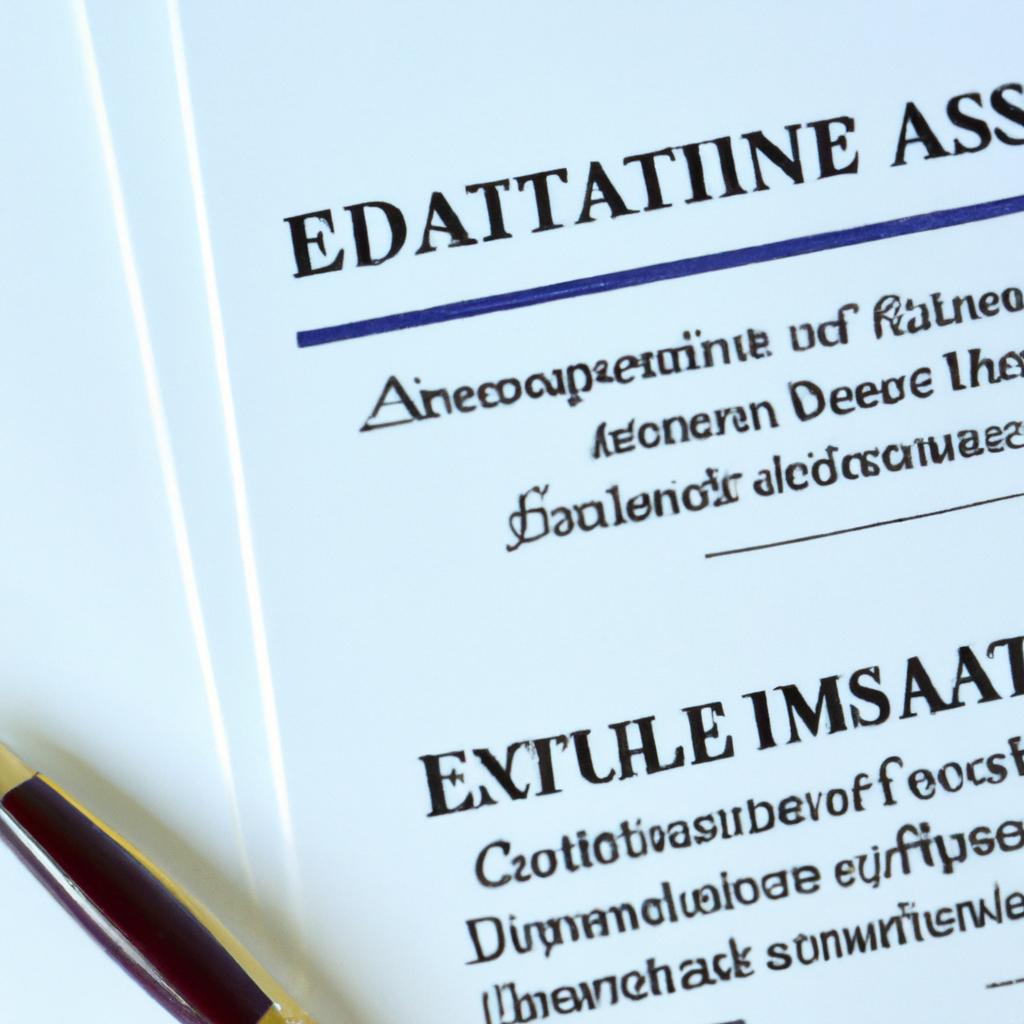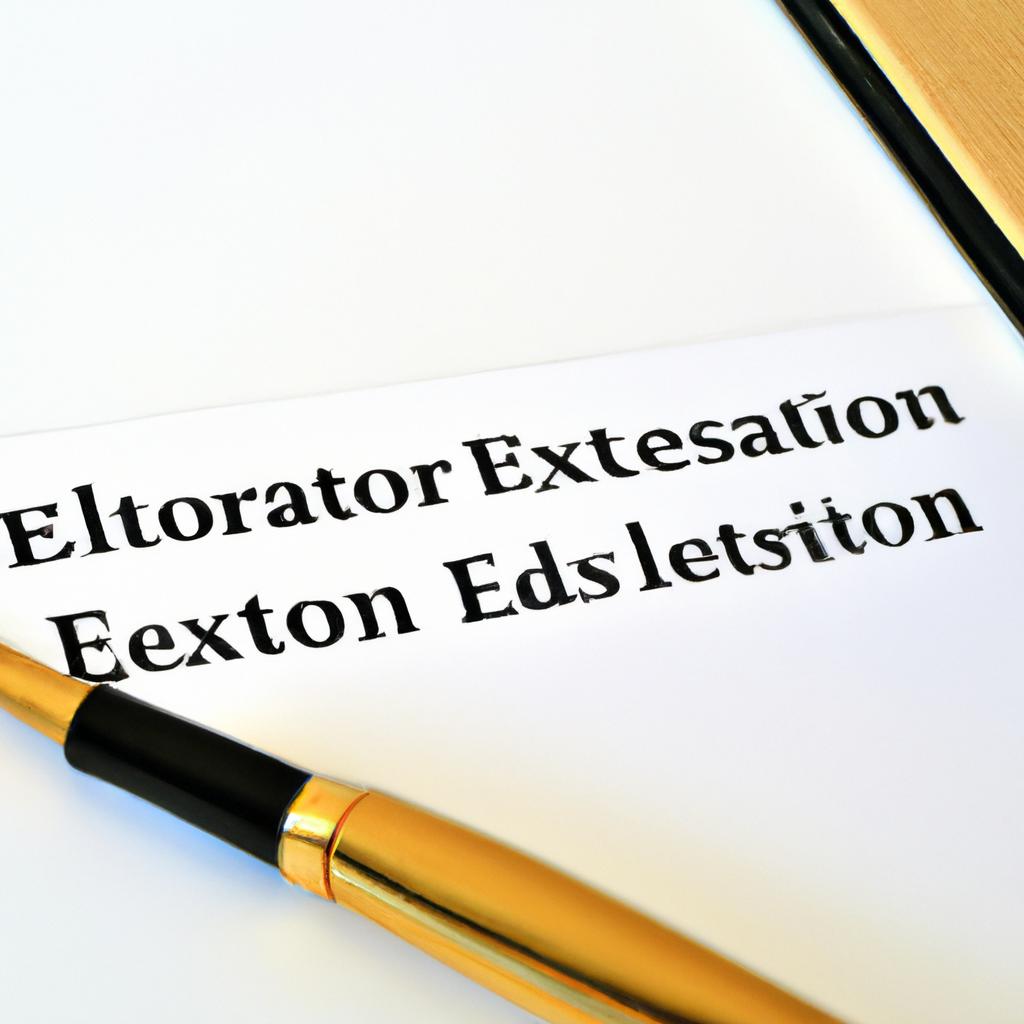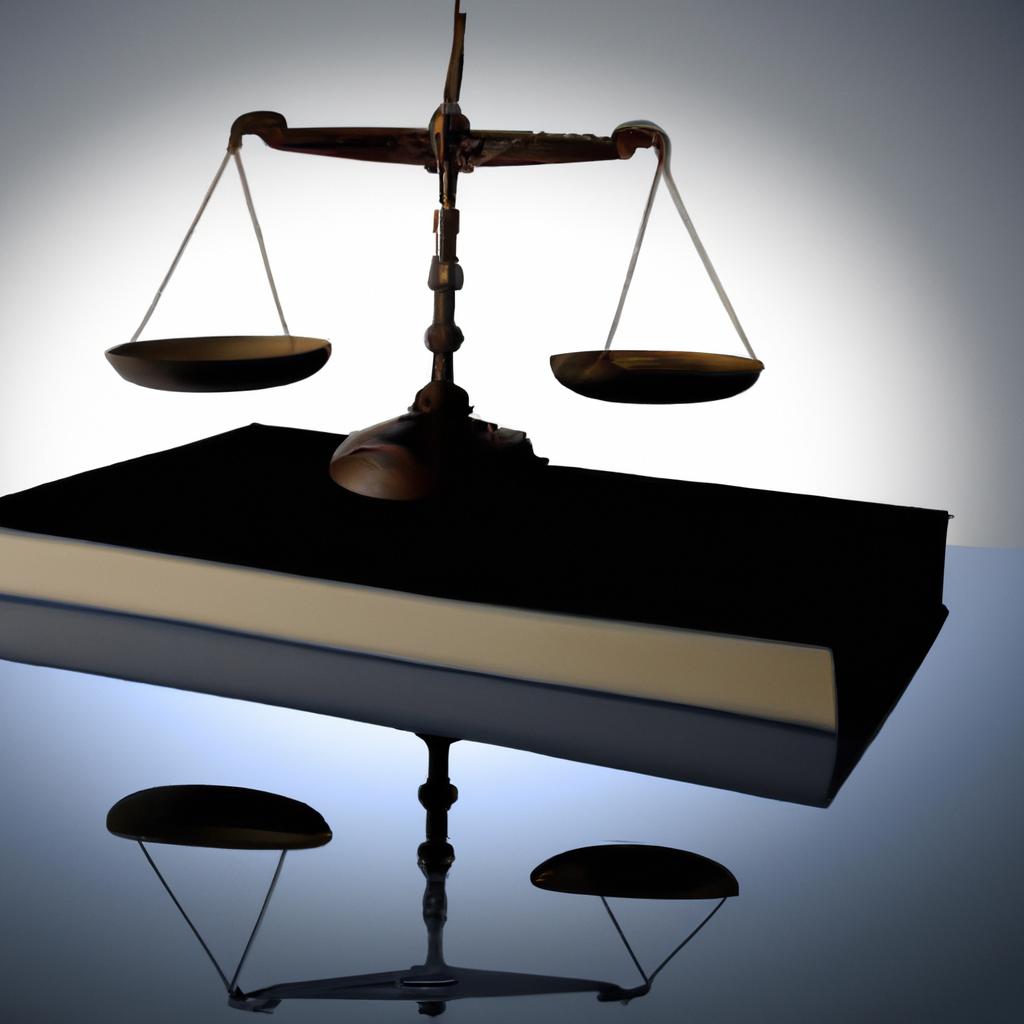As seasoned practitioners in the realm of estate law, we at Morgan Legal Group often field inquiries from individuals navigating the complexities of estate planning and administration. One question that frequently arises is: Can an executor fulfill their duties independently, or should they seek professional guidance? In this article, we will delve into the roles and responsibilities of an executor, exploring the potential benefits and pitfalls of navigating the probate process solo. Join us as we unpack this nuanced topic with a keen eye for legal intricacies and practical considerations.
Duties and Responsibilities of an Executor in Estate Administration
An executor plays a crucial role in the administration of an estate. One of the key duties of an executor is to gather and manage the deceased person’s assets. This may involve locating all relevant financial documents, such as bank statements, investment accounts, and insurance policies. The executor is responsible for safeguarding these assets and ensuring they are distributed in accordance with the decedent’s wishes.
Additionally, an executor is tasked with handling the debts and liabilities of the estate. This includes notifying creditors of the decedent’s passing, paying outstanding bills, and settling any claims against the estate. The executor must also file the decedent’s final tax returns and distribute the remaining assets to the beneficiaries named in the will.

Challenges Faced by Executors in Fulfilling Their Legal Obligations
Executors play a crucial role in the administration of an estate, ensuring that the wishes of the deceased are carried out in accordance with the law. However, fulfilling the legal obligations of an executor can be a challenging and complex process. One of the primary challenges faced by executors is navigating the legal requirements and responsibilities outlined in the deceased’s Will. This includes identifying and valuing assets, paying off debts and taxes, distributing assets to beneficiaries, and obtaining necessary court approvals.
Another common challenge for executors is dealing with disputes among beneficiaries or creditors. These conflicts can arise due to misunderstandings, disagreements over asset distribution, or even legal challenges to the validity of the Will. Executors must be prepared to handle these conflicts with diplomacy and in accordance with the law to ensure the estate is settled fairly and efficiently.

Important Considerations When Selecting an Executor for Your Estate
Choosing the right executor for your estate is a crucial decision that should not be taken lightly. It is important to consider several factors when selecting someone to fulfill this important role. Here are some key considerations to keep in mind:
- Trustworthiness: The executor should be someone you trust implicitly to carry out your final wishes and act in the best interests of your beneficiaries.
- Financial responsibility: The executor will be responsible for managing and distributing your assets. It is important to choose someone who is financially savvy and capable of handling these duties diligently.
- Organizational skills: An effective executor should be well-organized and detail-oriented to ensure that all aspects of the estate administration are properly managed.
When selecting an executor, it is also important to consider their availability and willingness to fulfill the role. Being an executor can be a time-consuming and complex task, so it is essential to choose someone who is able to commit the necessary time and effort to properly fulfill their duties. Additionally, it may be wise to choose someone who is familiar with estate planning and probate laws to ensure that the process runs smoothly. Ultimately, selecting the right executor can help ensure that your final wishes are carried out and that your estate is distributed according to your wishes.
Key Strategies for Executors to effectively Manage and Distribute Estate Assets
When it comes to managing and distributing estate assets, executors play a crucial role in ensuring the wishes of the deceased are carried out efficiently and effectively. Executors must navigate through a complex legal and financial landscape, requiring them to employ key strategies to safeguard and allocate estate assets appropriately.
**Key Strategies for Executors:**
- **Communication:** Keeping open lines of communication with beneficiaries and other involved parties to ensure transparency throughout the process.
- **Organization:** Maintaining detailed records of all estate assets, debts, and transactions to streamline the distribution process.
- **Due Diligence:** Conducting thorough research and seeking professional guidance when necessary to make informed decisions regarding asset management and distribution.
Q&A
Q: Can an executor also be a beneficiary in a will?
A: Yes, it is possible for the executor of a will to also be a beneficiary. However, it is important for the executor to act in the best interests of all beneficiaries and not prioritise their own interests.
Q: Can an executor be removed from their role?
A: Yes, an executor can be removed from their role if they are found to be unfit to carry out their duties or if they fail to act in the best interests of the beneficiaries. This typically requires a legal process.
Q: Can an executor make changes to a will?
A: An executor does not have the authority to make changes to a will. Their role is to carry out the wishes of the deceased as outlined in the will. Any changes to the will must be done through the appropriate legal channels.
Q: Can an executor be held personally liable for mistakes?
A: In some cases, an executor can be held personally liable for mistakes or misconduct in their role. It is crucial for executors to act diligently and seek legal guidance if they are unsure of their responsibilities.
Q: Can an executor refuse their role?
A: Yes, an executor has the right to refuse their role if they feel unable to fulfill the responsibilities or if they have a conflict of interest. In such cases, an alternative executor may need to be appointed.
Concluding Remarks
In conclusion, serving as an executor can be a challenging but rewarding role. It requires attention to detail, organization, and compassion. By following the proper procedures and seeking guidance when necessary, you can navigate the responsibilities of an executor with success. Remember, you are not alone in this process. Seek support from professionals and loved ones to help you fulfill your duties effectively. Good luck on your executor journey!
 Can an Executor: Understanding the Role, Responsibilities, and Limitations
Can an Executor: Understanding the Role, Responsibilities, and Limitations
When a person creates a will, they often appoint an executor to carry out their final wishes. An executor is a person, group of people, or an institution who is responsible for managing and distributing the deceased person’s estate. This might include property, bank accounts, investments, and personal possessions. While it can be an honor to be chosen as an executor, it also comes with a significant amount of responsibility and potential legal implications. Therefore, understanding the role, responsibilities, and limitations of an executor is crucial for anyone considering or appointed for the position.
In this comprehensive guide, we will dive deep into the various aspects of being an executor and provide valuable information to help you understand the role better. Additionally, we will also discuss the benefits and practical tips for successful execution, as well as some case studies and first-hand experiences to give a real-life perspective.
Understanding the Role of an Executor
An executor is someone who is named in a will to oversee the distribution of a deceased person’s assets according to their last wishes. The role of an executor is crucial as they are entrusted with managing the deceased’s affairs and ensuring that their final wishes are carried out accurately. To be appointed as an executor, a person must be at least 18 years old and of sound mind.
An executor’s responsibilities might vary depending on the complexity and nature of the estate. However, some general responsibilities of an executor include:
1. Locating and managing assets: The first duty of an executor is to locate and take control of the deceased person’s assets. This might include properties, bank accounts, investments, and other valuables.
2. Paying off debts and taxes: The executor must also find and pay any outstanding debts and taxes owed by the deceased. This includes filing the final income tax return and paying off any estate taxes.
3. Distributing assets: Once all debts and taxes are paid, the executor must distribute the remaining assets to the beneficiaries according to the will’s instructions.
4. Communicating with beneficiaries: The executor must keep the beneficiaries informed about the progress of the estate and any legal proceedings.
5. Filing necessary paperwork: The executor is responsible for filing paperwork with the probate court and providing an inventory of the deceased’s assets.
6. Representing the estate in legal matters: If the estate faces legal challenges, the executor is responsible for representing it in court.
Limitations of an Executor
While an executor has significant responsibilities, there are also some limitations to their role. Understanding these limitations is crucial for both the executor and the beneficiaries.
1. Cannot change the will: An executor is not allowed to make any changes to the will or distribute assets differently from what is specified in the will. They must follow the instructions outlined in the document.
2. Cannot ignore the will: An executor must not ignore the instructions outlined in the will, even if they believe it is not in the best interest of the estate. Their role is to carry out the deceased’s final wishes, not to make decisions on their behalf.
3. Cannot benefit personally: The executor cannot benefit from the estate in any way unless it is explicitly stated in the will. They cannot take possession of any assets or use them for their personal gain.
Benefits and Practical Tips for Being an Executor
While the role of an executor comes with significant responsibilities and limitations, there are also many benefits to being an executor. Some people might see it as an honor to be chosen as it shows the deceased’s trust and confidence in their abilities. Additionally, being an executor can also provide a sense of closure and fulfillment in carrying out a loved one’s final wishes.
To be a successful executor, there are some practical tips that you can follow:
1. Understand the will: The first step to being a successful executor is to fully understand the will. Take the time to read through it carefully and ask any questions you may have to the deceased or their legal counsel.
2. Seek professional help: If the estate is complex or involves a significant amount of assets, it is wise to seek assistance from a professional such as a lawyer or accountant to ensure all legal requirements are fulfilled.
3. Communicate with beneficiaries: Keeping an open line of communication with beneficiaries is crucial in preventing misunderstandings and ensuring a smooth process.
4. Keep detailed records: As an executor, you will be managing the estate’s finances, so it is essential to keep detailed records of all financial transactions and communications with beneficiaries.
Case Studies and First-hand Experiences
To provide a real-life perspective, let us look at some case studies and first-hand experiences of being an executor:
1. Mary was chosen as the executor of her mother’s will. While her mother had a few bank accounts and personal possessions, she also had a large estate in the countryside with multiple properties. Mary found it overwhelming to manage the estate, so she sought help from a lawyer who guided her through the process and made it much smoother.
2. John was appointed as an executor to his father’s will. Everything was going smoothly until his half-sister contested the will, claiming that she was entitled to a portion of the estate. It became a lengthy legal process, and although John ultimately won, it caused a significant strain on his relationship with his half-sister.
Conclusion
Being an executor is a significant responsibility that comes with a set of challenges, limitations, and benefits. By understanding the role, responsibilities, and limitations of an executor, you can ensure that the final wishes of your loved one are honored efficiently and effectively. Seeking professional help and keeping open communication with beneficiaries are crucial in fulfilling the role successfully. As an executor, you hold an important role in honoring a loved one’s final wishes, and it is vital to carry out your duties with care, integrity, and respect.
Keyword: Can an Executor
Meta title: Can an Executor: Understanding the Role, Responsibilities, and Limitations
Meta description: Being an executor comes with significant responsibilities and limitations. This comprehensive guide delves into the role of an executor and provides practical tips, case studies, and first-hand experiences to help you understand the role better.

